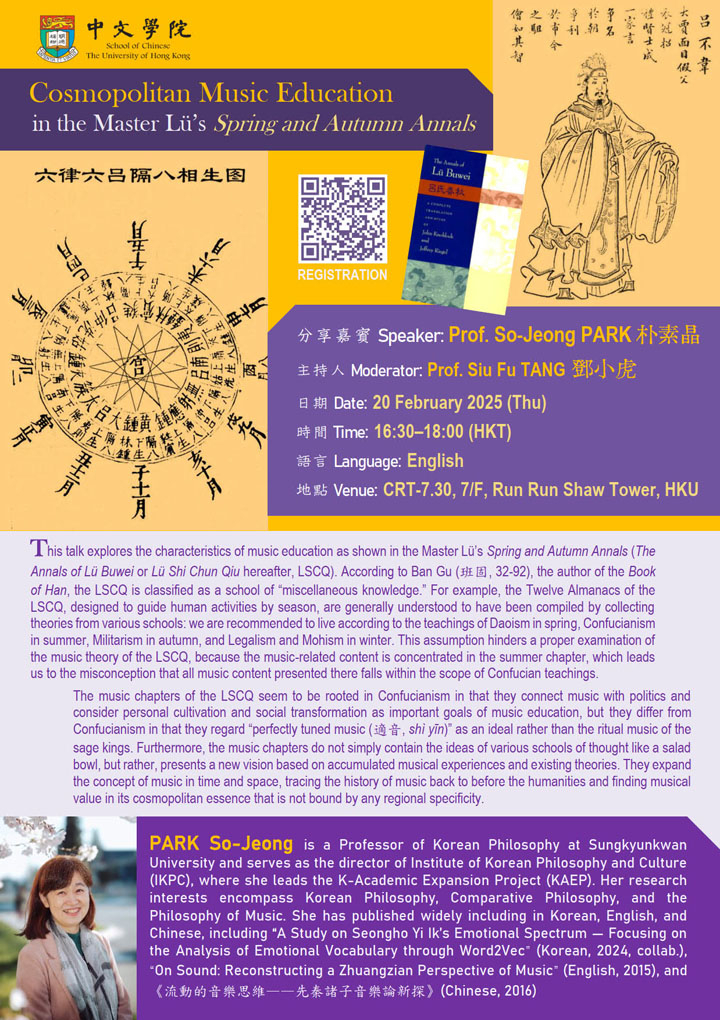[活動回放]Cosmopolitan Music Education in the Master Lü’s Spring and Autumn Annals

****************************************************************
School of Chinese Scholar Seminar
Cosmopolitan Music Education in the Master Lü’s Spring and Autumn Annals
Abstract:
This talk explores the characteristics of music education as shown in the Master Lü’s Spring and Autumn Annals (The Annals of Lü Buwei or Lü Shi Chun Qiu hereafter, LSCQ). According to Ban Gu (班固, 32-92), the author of the Book of Han, the LSCQ is classified as a “miscellaneous. For example, the Twelve Almanacs of the LSCQ, designed to guide human activities by season, are generally understood to have been compiled by collecting theories from various schools: we are recommended to live according to the teachings of Daoism in spring, Confucianism in summer, Militarism in autumn, and Legalism and Mohism in winter. This assumption hinders a proper examination of the music theory of the LSCQ, because the music-related content is concentrated in the summer chapter, which leads us to the misconception that all music content presented there falls within the scope of Confucian teachings.
The music chapters of the LSCQ seem to be rooted in Confucianism in that they connect music with politics and consider personal cultivation and social transformation as important goals of music education, but they differ from Confucianism in that they regard “perfectly tuned music (適音, shì yīn)” as an ideal rather than the ritual music of the sage kings. Furthermore, the music chapters do not simply contain the ideas of various schools of thought like a salad bowl, but rather, presents a new vision based on accumulated musical experiences and existing theories. They expand the concept of music in time and space, tracing the history of music back to before the humanities and finding musical value in its cosmopolitan essence that is not bound by any regional specificity.
About the Speaker:
PARK So-Jeong is a Professor of Korean Philosophy at Sungkyunkwan University and serves as the director of Institute of Korean Philosophy and Culture (IKPC), where she leads the K-Academic Expansion Project (KAEP). Her research interests encompass Korean Philosophy, Comparative Philosophy, and the Philosophy of Music. She has published widely including in Korean, English, and Chinese, including “A Study on Seongho Yi Ik’s Emotional Spectrum ― Focusing on the Analysis of Emotional Vocabulary through Word2Vec” (Korean, 2024, collab.), “On Sound: Reconstructing a Zhuangzian Perspective of Music” (English, 2015), 《流動的音樂思維——先秦諸子音樂論新探》(Chinese, 2016)








